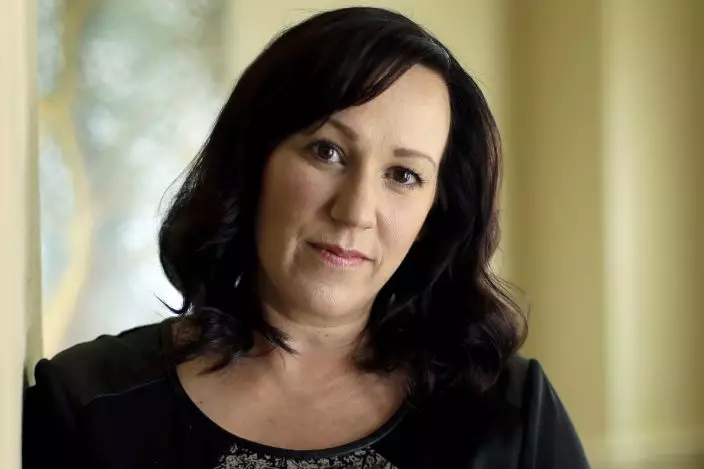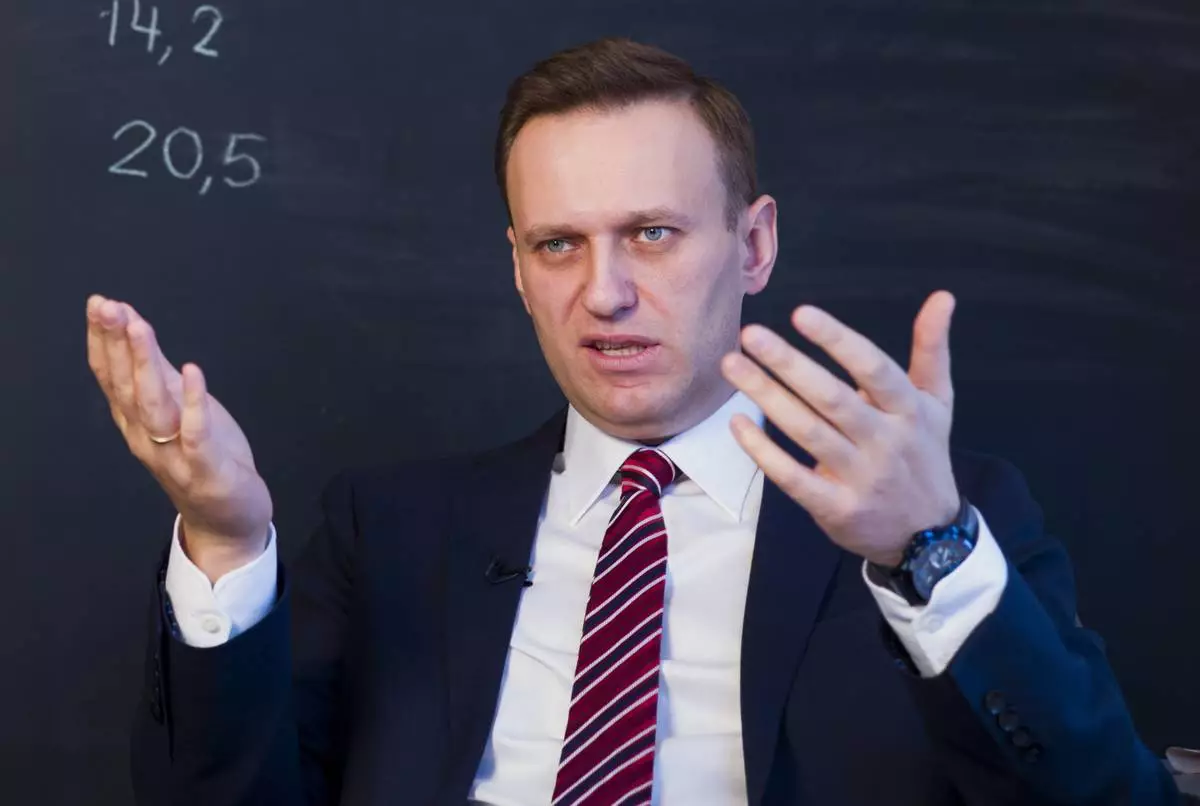Democratic candidates in some key Senate races in 2020 aren't going along as some candidates in the party's presidential field take a hard liberal turn.
Big gaps already are apparent in races in Texas, Iowa and Arizona. The latest discordant voice is Amy McGrath of Kentucky, a Marine running against Senate Majority Leader Mitch McConnell. McGrath recalled wincing while watching a sprint to the left unfold during the first Democratic debates on TV.
Tension is growing as progressives become more insistent that the way to win in a polarized political environment is with ambitious ideas, not hedged compromises.

FILE - In this Aug. 9, 2018 file photo, MJ Hegar poses for a portrait at her home in Round Rock, Texas. Democratic candidates in some key states in the 2020 race aren’t going along as some in the party’s presidential field takes a hard liberal turn. In Texas, party leaders say they are confident in Air Force veteran Hegar taking on Republican incumbent John Cornyn but they also are not discouraging progressives from challenging her. (AP PhotoEric Gay, File)
In Texas, Air Force veteran MJ Hegar is the most significant challenger so far to Republican Sen. John Cornyn. Party leaders say they're confident in Hegar, but aren't discouraging other candidates.

FILE - In this Feb. 2019 file photo, former astronaut Mark Kelly speaks during his senate campaign kickoff event in Tucson, Ariz. Democratic candidates in some key states in the 2020 race aren’t going along as some in the party’s presidential field takes a hard liberal turn. In Arizona, a top Senate target for Democrats, Kelly already has taken pains to distance himself from presidential contenders like Elizabeth Warren, Bernie Sanders and Kamala Harris. (Mike ChristyArizona Daily Star via AP, File)
WASHINGTON (AP) — U.S. intelligence officials have determined that Russian President Vladimir Putin likely didn’t order the death of imprisoned opposition leader Alexei Navalny in February, according to an official familiar with the determination.
While U.S. officials believe Putin was ultimately responsible for the death of Navalny, who endured brutal conditions during his confinement, the intelligence community has found “no smoking gun” that Putin was aware of the timing of Navalny's death — which came soon before the Russian president's reelection — or directly ordered it, according to the official.
The official spoke on the condition of anonymity to discuss the sensitive matter.
Soon after Navalny’s death, U.S. President Joe Biden said Putin was ultimately responsible but did not accuse the Russian president of directly ordering it.
At the time, Biden said the U.S. did not know exactly what had happened to Navalny but that “there is no doubt” that his death “was the consequence of something that Putin and his thugs did.”
Navalny, 47, Russia’s best-known opposition politician and Putin’s most persistent foe, died Feb. 16 in a remote penal colony above the Arctic Circle while serving a 19-year sentence on extremism charges that he rejected as politically motivated.
He had been behind bars since January 2021 after returning to Russia from Germany, where he had been recovering from nerve-agent poisoning that he blamed on the Kremlin.
Russian officials have said only that Navalny died of natural causes and have vehemently denied involvement both in the poisoning and in his death.
In March, a month after Navalny’s death, Putin won a landslide reelection for a fifth term, an outcome that was never in doubt.
The Wall Street Journal first reported about the U.S. intelligence determination.

FILE - Russian opposition politician Alexei Navalny gestures while speaking during his interview to the Associated Press in Moscow, Russia on Dec. 18, 2017. U.S. intelligence officials have determined that Russian President Vladimir Putin likely didn't order the death of Navalny, the imprisoned opposition leader, in February of 2024. An official says the U.S. intelligence community has found "no smoking gun" that Putin was aware of the timing of Navalny's death or directly ordered it. (AP Photo/Alexander Zemlianichenko, File)












